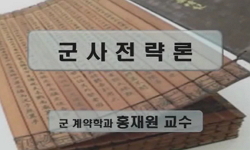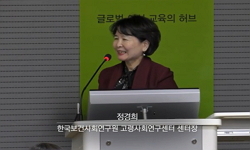The purpose of this study is to consider whether it is proper that the fourth genre called didacticism(敎述), transtatives(傳述) or thematic modes can have a position equal to those of lyric, epic, drama. The proponents of genre theories have long...
http://chineseinput.net/에서 pinyin(병음)방식으로 중국어를 변환할 수 있습니다.
변환된 중국어를 복사하여 사용하시면 됩니다.
- 中文 을 입력하시려면 zhongwen을 입력하시고 space를누르시면됩니다.
- 北京 을 입력하시려면 beijing을 입력하시고 space를 누르시면 됩니다.

제4장르 설정의 문제점 고찰 (1) : 4분법의 전개과정과 영역확장 및 체계화에의 욕망- = A Study on Problem for Quartering method of Genre theories
한글로보기https://www.riss.kr/link?id=A30049430
-
저자
김창현 (성균관대)
- 발행기관
- 학술지명
- 권호사항
-
발행연도
2003
-
작성언어
Korean
-
주제어
교슬 ; 유연성 ; 제시형식 ; 제4장르 ; 주제적 양식 ; 전술 ; didacticism ; flexibility ; presentation from ; the fourth genre ; thematic modes ; transtatives
-
KDC
800.0905
-
등재정보
KCI등재
-
자료형태
학술저널
- 발행기관 URL
-
수록면
423-448(26쪽)
- 제공처
- 소장기관
-
0
상세조회 -
0
다운로드
부가정보
다국어 초록 (Multilingual Abstract)
The purpose of this study is to consider whether it is proper that the fourth genre called didacticism(敎述), transtatives(傳述) or thematic modes can have a position equal to those of lyric, epic, drama. The proponents of genre theories have long believed that the trichotomy originated form 'Poetica'. But it was revealed by G.Genette that lyric was excluded from the then trichotomy; instead of lyric had been presented something of 'a purely descriptive mode', which, however, was recognized as being not sustainable in terms of art, so lyric came to substitute it. Now, the today's quartering method also is explained, with emphasis on works that seem closer to the 'purely descriptive mode' than lyric; essays and Gasa (an ole form of Korean verse) are such ones. However, these have not yet revealed their clear self-identity that can match the existing three genres.
The problem is that a new alternative beyond the existing trichotomy is demanded as to explain the phenomenon of interrelations between genders and the essay literature that has grown rapidly since the modern age. And such a demand was urgent in East Asia, particularly in Korea. The upper-class intellectuals needed to establish 'the 4th genre' on an equal footing with epic or drama, so as to highly evaluate the Korean Medieval literature that has an insignificant tradition of epic or drama. In addition to this, the characteristics of Korean structuralism that stuck to the grand theory made genre theories in Korea more abstract and schematic.
Reflecting on such a process, the present writer insists in this paper that the thinking on genres itself should be changed, not a new category should be created, So as to explain by means of the genre theory the present Korean situation where essays and experimental works are produced abundantly and medieval Korean literal literature centers around literary works that cannot easily fall under either lyric or epic. The genre system should be a classification system to explain the root and characteristics of historic genres' not one to explain the root and characteristics of historic genres, not one to put literary works into fixed categories. To do so, major upper genres also should have actual bases, not set up abstractly. Also, 'flexibility' in a true sense should be secured through demolishing walls for classification assumed between genres. In this context, I have got in my mind the plan of a new genre system that has no wall and is based on 'Presentation Form' mentioned as the basis of genre theories by many researchers including Frye and Hernadi.
동일학술지(권/호) 다른 논문
-
- 한국비교문학회
- 이강현
- 2003
- KCI등재
-
『완월회맹연(玩月會盟宴)』과 『겐지 모노가타리(源氏物語)』의 구조적 특징과 결혼형태에 관한 비교연구
- 한국비교문학회
- 山田恭子
- 2003
- KCI등재
-
- 한국비교문학회
- 성혜경
- 2003
- KCI등재
-
- 한국비교문학회
- 최관
- 2003
- KCI등재




 KISS
KISS







